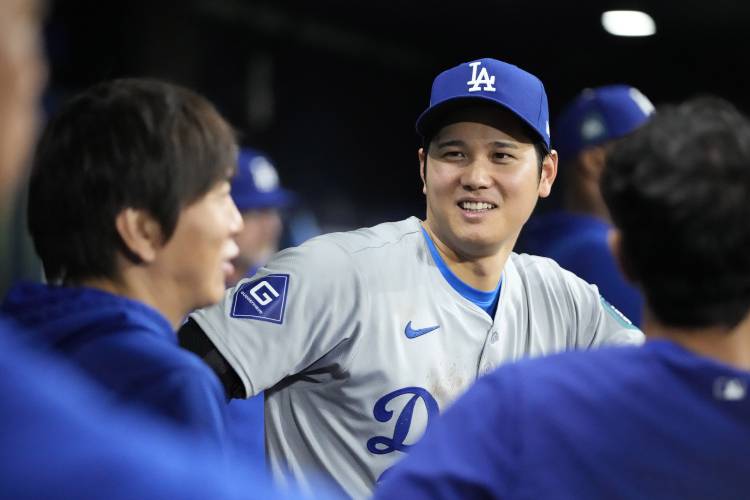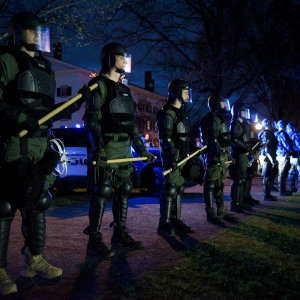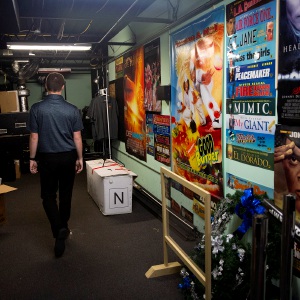Editorial: Gambling tarnishes America’s sporting life

Los Angeles Dodgers designated hitter Shohei Ohtani, right, talks with interpreter Ippei Mizuhara during the ninth inning of an opening day baseball game against the San Diego Padres at the Gocheok Sky Dome in Seoul, South Korea Wednesday, March 20, 2024, in Seoul, South Korea. (AP Photo/Lee Jin-man) Lee Jin-man
|
Published: 04-06-2024 6:52 AM
Modified: 04-08-2024 10:41 AM |
Hey, Major League Baseball, does the name Pete Rose ring a bell? Remember him, “Charlie Hustle”? One of the game’s greatest players, whom you banned for life in 1989 because he bet on baseball games?
We ask because you have on your hands another betting scandal, this one involving Shohei Ohtani, arguably the most talented baseball player since Babe Ruth. Also because it is shocking in these circumstances to find you in bed with an online gambling outfit named FanDuel, your “official gaming partner.” We’re jilted, but at least the relationship is not promiscuous; the consenting parties have an exclusive multiyear deal to promote betting on the sport.
Of course, baseball is hardly alone among major sports leagues in entering into gambling’s sordid embrace. The National Basketball Association has a $25 million contract with MGM Resorts. The National Football League has entered into partnerships with sports betting companies that are reported to be worth $1 billion over five years.
No wonder: Americans legally bet nearly $120 billion on sports in 2023, and everybody wants their cut. Besides lucrative marketing deals, sports leagues want to capitalize on gambling to ramp up interest among fans and also attract new ones. State governments, including Vermont and New Hampshire, also have a financial stake, despite the highly addictive nature of smartphone-enabled online gambling, especially for young males.
For this situation, as with so many other of society’s current ills, we have the U.S. Supreme Court to thank. In 2018, the court struck down a ban that restricted wagering on games to Nevada, paving the way for states to legalize betting, which 38 and counting have done. This was something sports leagues had resisted fiercely for decades; but they soon caved and have taken millions of dollars from companies eager to lure new gamblers.
Money talks, in this case out of both sides of its mouth. The leagues are cashing in even while proclaiming their commitment to protecting their sports from the corrosive effects of betting. In doing so, they are blithely ignoring the mortal threat that gambling poses to the integrity of their games. Bettors can wager not only on the outcome of games, but also on individual player performances, expanding the potential for corruption.
Not surprisingly, the NFL penalized 10 players last season for gambling violations, including seven who were suspended for the full season for betting on NFL games. The NBA is now investigating a Toronto Raptors player over reported betting irregularities related to his statistics. In college basketball, Temple University is reviewing a March 7 game that was the object of unusual betting patterns.
We predict that this is but the tip of a dangerous iceberg. Take the murky circumstances of the Ohtani mess, which surfaced while the Los Angeles Dodgers, with whom he signed a 10-year $700 million free agent contract in the off-season, opened the season in Seoul, South Korea.
Article continues after...
Yesterday's Most Read Articles
 Kenyon: Dartmouth shows it has no patience for peaceful protest
Kenyon: Dartmouth shows it has no patience for peaceful protest
 Claremont movie theater to close at end of May
Claremont movie theater to close at end of May
 Lebanon High senior comes to the aid of driver with health problem
Lebanon High senior comes to the aid of driver with health problem
 Editorial: Response to campus protests only adds fuel to the fire
Editorial: Response to campus protests only adds fuel to the fire
 Norwich author and educator sees schools as a reflection of communities
Norwich author and educator sees schools as a reflection of communities
 Dartmouth moves swiftly to stymie demonstration, leads to 90 arrests
Dartmouth moves swiftly to stymie demonstration, leads to 90 arrests
What’s known for sure is that $4.5 million was wired from the superstar’s bank account to an alleged California bookmaker who is under federal scrutiny. (Sports betting remains illegal in California.)
At first, Ohtani’s long-time interpreter, Ippei Mizuhara, told ESPN that he had run up the gambling debt and that Ohtani bailed him out. According to this initial version, the two men logged into Ohtani’s bank account and wired the money in $500,000 increments in 2023 to pay it off.
However, Mizuhara soon recanted and was fired by the Dodgers. The story now is that Ohtani had no knowledge of the gambling debt and that Mizuhara stole the money to cover it. This despite the fact that the two have been described as “inseparable” by Ohtani’s former manager with the Los Angeles Angels. Ohtani subsequently read a statement at a news conference declaring that he had been lied to by Mizuhara and had never bet on baseball or any other sport.
MLB is said to be investigating, although how vigorously is an open question, given that Ohtani is the game’s biggest star. Even if he is cleared, questions will remain about whether Mizuhara took the fall for him. This is precisely the kind of lingering suspicion that sports leagues once made strenuous efforts to avoid.
On a broader level, the enduring appeal of sports depends on the perception and reality that the outcome of games is fair, not manipulated by unseen forces. Sports provides a welcome respite at a time when the legitimacy of so much in American life is under attack, from elections to science to news. Intercourse with gambling interests threatens to render sports just another arena that’s considered untrustworthy.

 Editorial: Chris Sununu’s moral vacuum
Editorial: Chris Sununu’s moral vacuum By the Way: A white nationalist’s many mistruths
By the Way: A white nationalist’s many mistruths Column: The age-old question of what to read
Column: The age-old question of what to read
